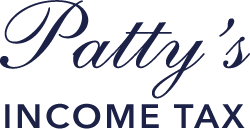Many people assume that the IRS will not impose penalties if you weren’t actually trying to cheat on your taxes. After all, taxes are complex, and mistakes happen. But the burden is on you to show that you acted reasonably. Relying on professional tax advice can be one way. If you can’t convince the IRS, you will probably end up with penalties. The size of penalties varies, but they are often around 25%. Higher penalties and even criminal prosecution are possible in some cases. You might even have to prove you are right or that your mistakes were innocent. If the IRS believes you were trying to cheat, you could face a civil penalty of 75% or even criminal prosecution. And remember, most criminal tax cases start with civil audits.
Innocent mistakes can often be forgiven if you can show that you tried to comply and got some advice. But it would be a mistake to assume that anything can be called an innocent mistake. In fact, you can be attributed knowledge. Everyone has heard that ignorance of the law is no excuse. On many key tax subjects, the IRS says that with hardly any effort, you could easily learn the IRS requirements. The tax law draws a line between non-willful and willful, and penalties or even prosecution can hang in the balance. Willfulness can be shown by your knowledge of reporting requirements and your conscious choice not to comply.
Willfulness involves a voluntary, intentional violation of a known legal duty. In taxes, it applies for civil and criminal violations. This definition causes many people to think they are home free. You may not have meant any harm, but that may not be enough. The failure to learn of filing requirements, coupled with efforts to conceal the facts, can spell willfulness. Willfulness is shown by your knowledge of reporting requirements and your conscious choice not to comply. Willfulness means you acted with knowledge that your conduct was unlawful—a voluntary, intentional, violation of a known legal duty. Watch out for conduct meant to conceal, such as:
- Setting up trusts or corporations to hide your ownership.
- Filing some tax forms and not others.
- Keeping two sets of books.
- Telling your bank not to send statements.
- Using code words over the phone.
- Cash deposits and cash withdrawals.
All of these might suggest willfulness. So can moving money from one bank to another when the banks don’t want undisclosed American accounts. Even if you can explain one failure to comply with the law, repeated failures can morph conduct from inadvertent neglect into reckless or deliberate disregard. Even willful blindness—a conscious effort to avoid learning about reporting requirements—may be enough. And failing to follow-up can provide evidence of willful blindness. Ask yourself if your explanation passes the straight face test, or get some advice about your facts from an experienced tax lawyer.
In one state tax case, the government argued that big spending in the face of unpaid taxes was itself willful. The court in Hawkins v. Franchise Tax Board said spending alone is not willful. However, the fact that such arguments reach the courts should tell you that willfulness can be a matter of opinion. Big dollars and even one’s freedom can turn on what’s willful.
Source: Forbes.com
